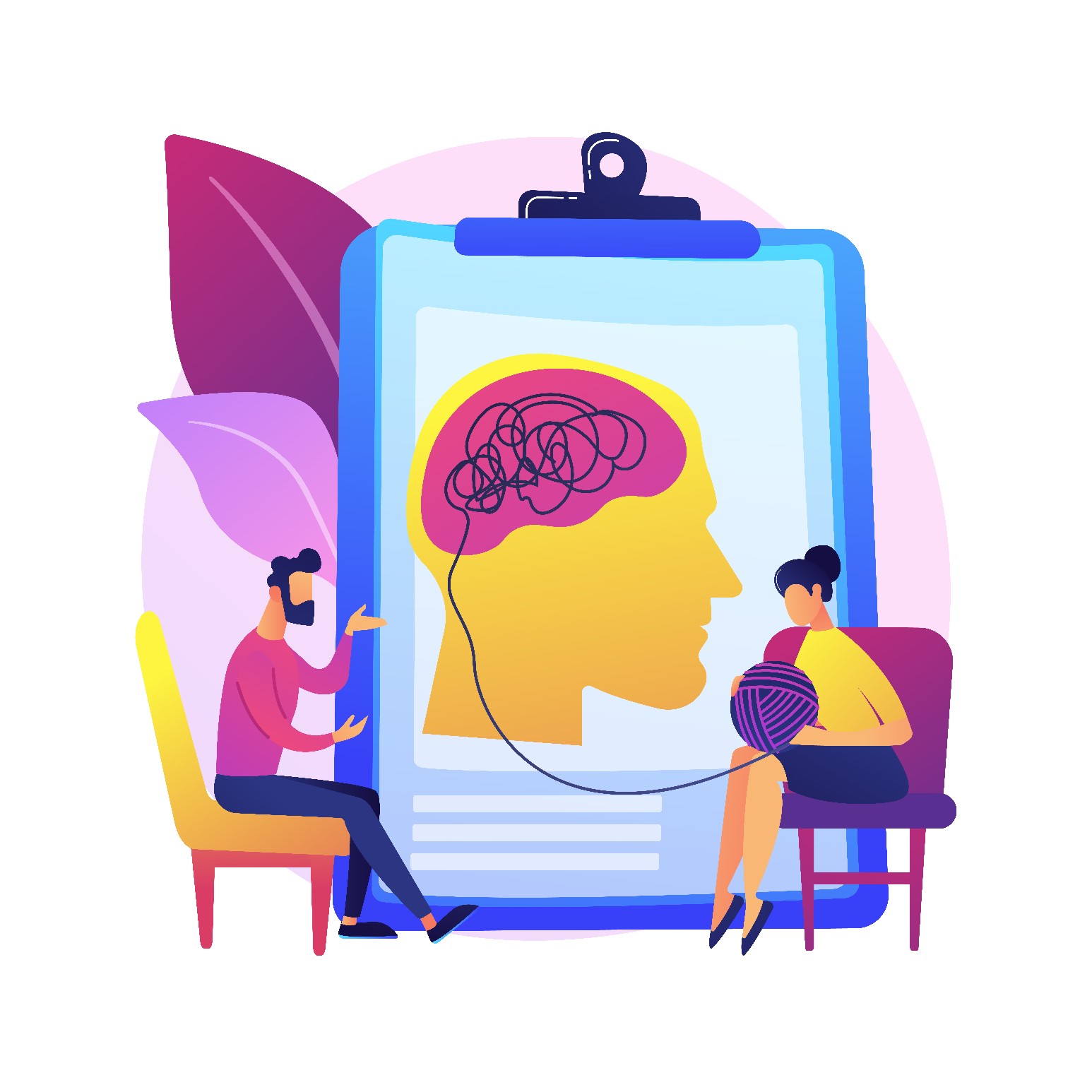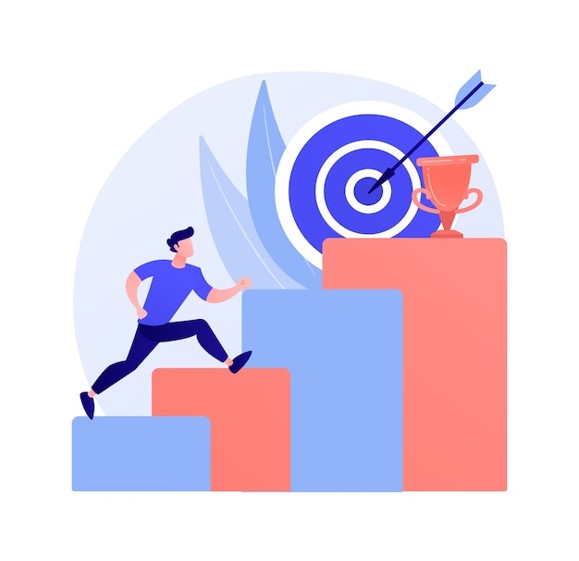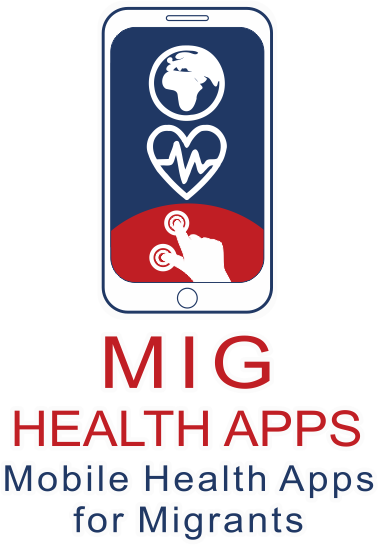10 Health Apps for Mental Health Problems (Course10-EN)
Health Apps for Mental Health Problems 
This online module is addressed to trainees.
Objectives

The main objective of this module is to raise awareness of what mental health is and the impact it has on the daily lives of migrants. Mental health is understood as a "state of emotional well-being that enables people to cope with stressful life events, to develop their full capacities, to be able to learn and work well, and to contribute to the betterment of their community" (WHO, 2022). An important aspect of mental health is differentiating between the types of emotions that people face in their daily lives and knowing how to manage them. Emotional intelligence brings together affective and cognitive processes to improve adaptation to different situations and conflict resolution. People who do not have good emotional intelligence have difficulty in managing emotions, causing pathologies and mental health problems, the most common of which are anxiety, depression and stress (Delhom et al., 2023).
During this module, a series of applications will be presented that will guide users towards understanding their emotions and the implications for mental health, and participants will also be taught how to use mental health applications through case studies and activities. The aim is to prevent potential mental health problems and, above all, to improve self-management of health.
Images by vectorjuice on Freepik
LessHealth Apps for Mental Health Problems 
This online module is addressed to trainees.
Objectives

The main objective of this module is to raise awareness of what mental health is and the impact it has on the daily lives of migrants. Mental health is understood as a "state of emotional well-being that enables people to cope with stressful life events, to develop their full capacities, to be able to learn and work well, and to contribute to the betterment of their community" (WHO, 2022). An important aspect of mental health is differentiating between the types of emotions that people face in their daily lives and knowing how to manage them. Emotional intelligence brings together affective and cognitive processes to improve adaptation to different situations and conflict resolution. People who do not have good emotional intelligence have difficulty in managing emotions, causing pathologies and mental health problems, the most common of which are anxiety, depression and stress (Delhom e
Health Apps for Mental Health Problems 
This online module is addressed to trainees.
Objectives

The main objective of this module is to raise awareness of what mental health is and the impact it has on the daily lives of migrants. Mental health is understood as a "state of emotional well-being that enables people to cope with stressful life events, to develop their full capacities, to be able to learn and work well, and to contribute to the betterment of their community" (WHO, 2022). An important aspect of mental health is differentiating between the types of emotions that people face in their daily lives and knowing how to manage them. Emotional intelligence brings together affective and cognitive processes to improve adaptation to different situations and conflict resolution. People who do not have good emotional intelligence have difficulty in managing emotions, causing pathologies and mental health problems, the most common of which are anxiety, depression and stress (Delhom e
Course Description

Objectives
The main objective of this module is to raise awareness of what mental health is and the impact it has on the daily lives of migrants. Mental health is understood as a "state of emotional well-being that enables people to cope with stressful life events, to develop their full capacities, to be able to learn and work well, and to contribute to the betterment of their community" (WHO, 2022). An important aspect of mental health is differentiating between the types of emotions that people face in their daily lives and knowing how to manage them. Emotional intelligence brings together affective and cognitive processes to improve adaptation to different situations and conflict resolution. People who do not have good emotional intelligence have difficulty in managing emotions, causing pathologies and mental health problems, the most common of which are anxiety, depression and stress (Delhom et al., 2023).
During this module, a series of applications will be presented that will guide users towards understanding their emotions and the implications for mental health, and participants will also be taught how to use mental health applications through case studies and activities. The aim is to prevent potential mental health problems and, above all, to improve self-management of health.
Participants and roles
- Newcomer migrants; learners. Migrants who want to improve their management of emotions, their emotional intelligence and adaptation to different situations and/or conflicts in everyday life.
- Migrants Peers; learners or trainers after being trained as trainers. When they will attend as trainees, they could play a role of supporting the Newcomer Migrants along the training process, including support in overcoming language barriers.
- Supports: learners or trainers after being trained as trainers. When they will attend as trainees, they could play a role of supporting the Newcomer Migrants along the training process, including support in overcoming language barriers.
Learning outcomes
- Learners will be introduced to basic knowledge of mental health, its importance and the impact it can have on everyday life.
- Learners will be able to differentiate between applications for recording their mental health.
- Learners will learn how to identify their emotions and how this can affect their mental health.
- Learners will know what mental health apps are, will be able to differentiate them from other apps and will learn how to use them appropriately.
Training Contents
- Know what mental health is and its importance.
- Knowing how to differentiate emotions.
- How mental health apps can help in self-management of health.
- What are mental health apps, examples.
Duration
Total Duration: 6 hours, 30 minutes
- Teaching sessions: 3:30 hours
- Experiential training session: 1 30 hours
- Self-study supported by e-learning tools: 2 hours
- Closure session: 30 min
Resources
- Training materials: ppt. for didactic session.
- Training material: activities.
- E-training platform and App training tool.
- Mental Health Apps: Examples of Mental Health Apps covering different areas and functions (stress, anxiety, PTSD, counselling, motivation, emotional regulation).
Bibliography
- Aldao, A., Nolen, S., & Schweizer, S. (2010). Emotion-regulation strategies across psychopathology: a meta-analytic review. Clinical Psychology Review, 30, 217-237.
- Consolo, K., Fusner, S., & Staib, S. (2008). Effects of diaphragmatic breathing on stress levels in nursing students. Teaching and Learning in Nursing, 3, 67-71.
- Delhom, I., Donio, M., Mateu, J., y Lacomba, L. (2023). Análisis de predictores de síntomas ansiosos, depresivos y del estrés: inteligencia emocional y afrontamiento. Revista psicología de la Salud, 11(1), 49-60. DOI: 10.21134/pssa.v11i1.302
- Keltner, D., Sauter, D., Tracy, J., & Cowen, A. (2019). Emotional expression: Advances in the basic theory of emotion. Journal of Nonverbal Behavior, 43, 133-160. https://doi.org/10.1007/s10919-019-00293-3.
- Schutte,N., Malouff, J., Simunek, M., McKenley, J., & Hollander, S.(2002). Characteristic emotional intelligence and emotional well-being. Cognitions and Emotion, 16(6), 769-785. DOI:10.1080/02699930143000482
- World Health Organization (17 June 2022). Mental health: strengthening our response.https://www.who.int/es/news-room/fact-sheets/detail/mental-health-strengthening-our-response
- World Health Organization. Anxiety disorders. https://www.who.int/news-room/fact-sheets/detail/anxiety-disorders
- World Health Organization. Stress. https://www.who.int/es/news-room/questions-and-answers/item/stress
- World Health Organization. Depression. https://www.who.int/news-room/fact-sheets/detail/depression
The main objective of this module is to raise awareness of what mental health is and the impact it has on the daily lives of migrants. Mental health is understood as a "state of emotional well-being that enables people to cope with stressful life events, to develop their full capacities, to be able to learn and work well, and to contribute to the betterment of their community" (WHO, 2022). An important aspect of mental health is differentiating between the types of emotions that people face in their daily lives and knowing how to manage them. Emotional intelligence brings together affective and cognitive processes to improve adaptation to different situations and conflict resolution. People who do not have good emotional intelligence have difficulty in managing emotions, causing pathologies and mental health problems, the most common of which are anxiety, depression and stress (Delhom et al., 2023).
During this module, a series of applications will be presented that will guide users towards understanding their emotions and the implications for mental health, and participants will also be taught how to use mental health applications through case studies and activities. The aim is to prevent potential mental health problems and, above all, to improve self-management of health.
- Newcomer migrants; learners. Migrants who want to improve their management of emotions, their emotional intelligence and adaptation to different situations and/or conflicts in everyday life.
- Migrants Peers; learners or trainers after being trained as trainers. When they will attend as trainees, they could play a role of supporting the Newcomer Migrants along the training process, including support in overcoming language barriers.
- Supports: learners or trainers after being trained as trainers. When they will attend as trainees, they could play a role of supporting the Newcomer Migrants along the training process, including support in overcoming language barriers.
- Learners will be introduced to basic knowledge of mental health, its importance and the impact it can have on everyday life.
- Learners will be able to differentiate between applications for recording their mental health.
- Learners will learn how to identify their emotions and how this can affect their mental health.
- Learners will know what mental health apps are, will be able to differentiate them from other apps and will learn how to use them appropriately.
- Know what mental health is and its importance.
- Knowing how to differentiate emotions.
- How mental health apps can help in self-management of health.
- What are mental health apps, examples.
Total Duration: 6 hours, 30 minutes
- Teaching sessions: 3:30 hours
- Experiential training session: 1 30 hours
- Self-study supported by e-learning tools: 2 hours
- Closure session: 30 min
- Training materials: ppt. for didactic session.
- Training material: activities.
- E-training platform and App training tool.
- Mental Health Apps: Examples of Mental Health Apps covering different areas and functions (stress, anxiety, PTSD, counselling, motivation, emotional regulation).
- Aldao, A., Nolen, S., & Schweizer, S. (2010). Emotion-regulation strategies across psychopathology: a meta-analytic review. Clinical Psychology Review, 30, 217-237.
- Consolo, K., Fusner, S., & Staib, S. (2008). Effects of diaphragmatic breathing on stress levels in nursing students. Teaching and Learning in Nursing, 3, 67-71.
- Delhom, I., Donio, M., Mateu, J., y Lacomba, L. (2023). Análisis de predictores de síntomas ansiosos, depresivos y del estrés: inteligencia emocional y afrontamiento. Revista psicología de la Salud, 11(1), 49-60. DOI: 10.21134/pssa.v11i1.302
- Keltner, D., Sauter, D., Tracy, J., & Cowen, A. (2019). Emotional expression: Advances in the basic theory of emotion. Journal of Nonverbal Behavior, 43, 133-160. https://doi.org/10.1007/s10919-019-00293-3.
- Schutte,N., Malouff, J., Simunek, M., McKenley, J., & Hollander, S.(2002). Characteristic emotional intelligence and emotional well-being. Cognitions and Emotion, 16(6), 769-785. DOI:10.1080/02699930143000482
- World Health Organization (17 June 2022). Mental health: strengthening our response.https://www.who.int/es/news-room/fact-sheets/detail/mental-health-strengthening-our-response
- World Health Organization. Anxiety disorders. https://www.who.int/news-room/fact-sheets/detail/anxiety-disorders
- World Health Organization. Stress. https://www.who.int/es/news-room/questions-and-answers/item/stress
- World Health Organization. Depression. https://www.who.int/news-room/fact-sheets/detail/depression

Objectives
-
Learning about the importance of taking care of mental health
-
Learning how to use mental health apps
-
Learn what emotions are and their importance
-
Learn how to detect emotions and how to regulate them.
-
Learn how to control your breathing in stressful moments.
-
Be able to differentiate between each of the mental health applications.
-
Know how to use them and make good use of them
Duration: 3 hours, 30 minutes
Objective
-
Mastering the use of mental health applications
Duration: 1 hour, 30 minutes
Objective
- Self-Assessment via a Quiz
Duration: 1 hour, 30 minutes
Calendar
Announcements
- - There are no announcements -
